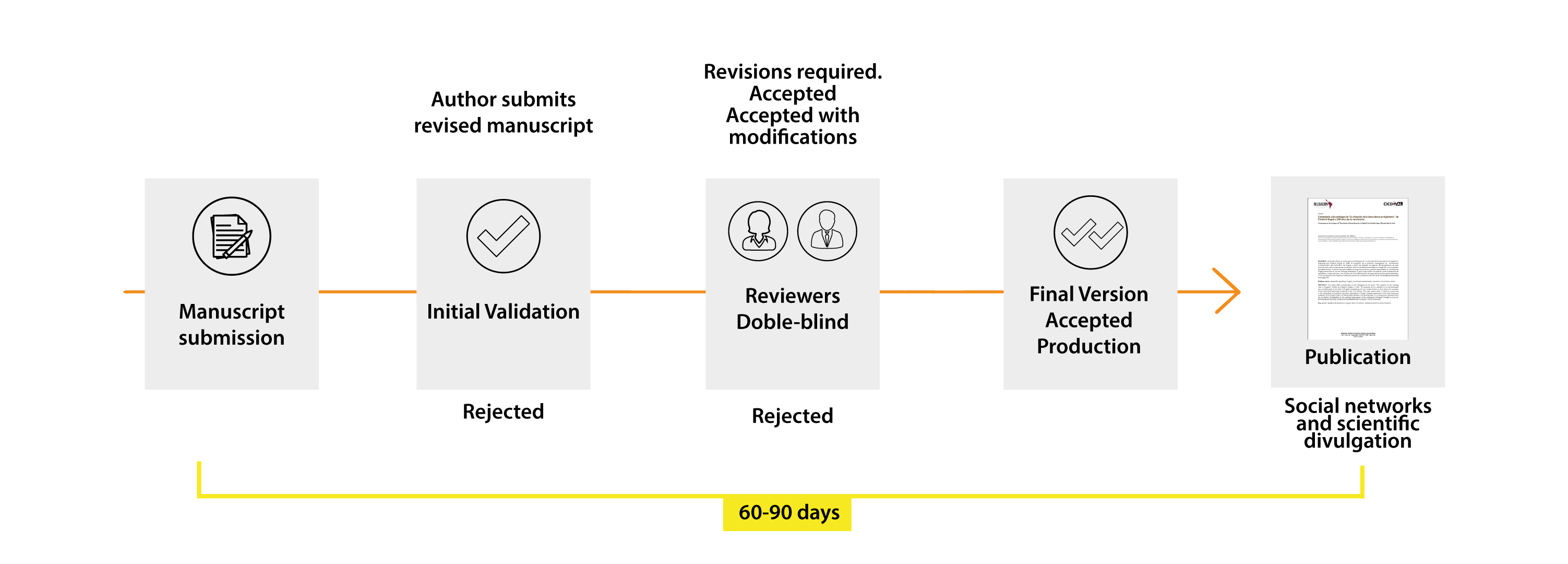
Peer Review
All manuscripts received by e-mail are uploaded to the Open Journal System (OJS), used by the journal, in order to guarantee an electronic and auditable record of the interactions between the publication and the authors. After this, it is the Board of Editors, and in the case of the dossier section, the guest editors who review that the originals comply with the objective and scope of the publication and theme of the issue, as well as with the authors' guidelines.
The articles that pass this first phase continue with the editorial process. All manuscripts are submitted to the double-blind peer-review process. The reviewers are experts in the subject and external to the journal and the authors' institutions. This process guarantees the anonymity of authors and reviewers, certifying the transparency, objectivity, and impartiality of the review process. The evaluation rubric used by external reviewers can be consulted here: research articles/case studies, Theoretical/revision articles, and book review
The entire review process, from the moment the manuscripts are submitted through OJS to the completion of the reviews, takes an average of 4 to 6 weeks. Reviewers must comply with reviewer guidelines and the reviewer code of ethics.
The decision of acceptance or rejection of the articles is finally made by the Editorial Board, headed by the Editor-in-Chief, based on the evaluations informed by external experts, and the recommendations of the Advisory Committee of the RESISTANCES Journal.
The editorial team of RESISTANCES is committed to the scientific community to guarantee the ethics and quality of the articles published. The publication takes as a reference the Code of Conduct and Good Practices of the Committee on Publication Ethics (COPE), which defines the journal's conduct. The criteria of good practice can be found at: https://publicationethics.org/guidance/Guidelines
Resistances will reject any work that is not original, or that has been previously published, as well as those articles that exceed 15% of similarity in the report of the anti-plagiarism software Similarity Check (CrossRef). By accepting the terms and conditions expressed, the authors have to guarantee that the articles and the materials associated with them are original and do not infringe copyright.
The intellectual property of the published material belongs to the authors under CC BY-NC-ND 4.0 license.
Duration
The approximate waiting time for the review process ranges from 4 to 6 weeks for receipt of the results of the reviews. The articles accepted and that complete the correction and editing process will be published in the issue in progress because the journal uses the continuous publication system.
Authors will be informed of this process.
Reviewers 2022-2023



